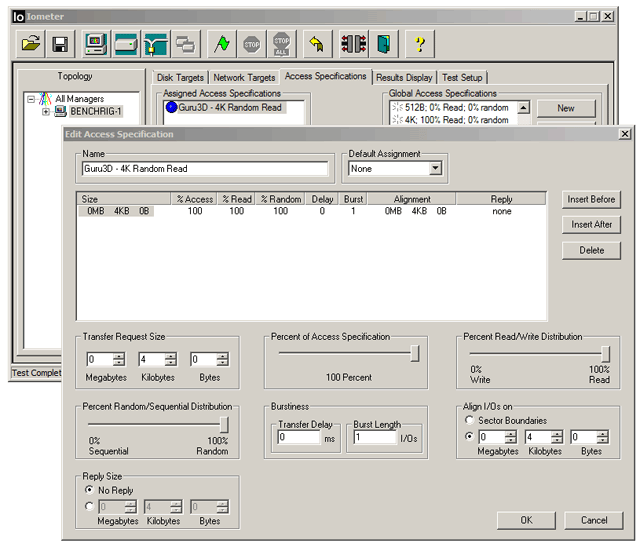SSD Performance IOMeter
IO Meter IOPS performance
IO meter, results vary per website since everybody configures this test differently. We brought the ancient application back in rotation as it remains the best application to really stress the random IO performance amongst others for storage devices.

Iometer is a workload creator, it will literally perform massive I/O operations in order to stress the system. To measure random I/O response time as well as total I/O's per second, Iometer is set to use 4KB file size chunks and will completely trash the SSD with random 4KB files, massively stressing the random IO.
We apply a 4KB Random IO read and write stress test, leave it running for 1 minute and then note down the average IOPS score in operations per second.

Above is the write performance - Now with Random IO 4KB WRITE performance, this is where the SandForce controllers hauls massive ass.
We apply a 4KB Random IO read and write stress test so it differs a little from the regular (OCZ) test methodology, we leave it running for a while and then note down the average IOPS score in operations per second.
Above read performance - We ran the test several times, and there definitely seems to be an anomaly in read performance versus IOmeter.
Above write performance - Now with Random IO 4KB WRITE performance, this is where SandForce controllers kick in hard. It seems that everybody is using IOMeter's parameters slightly different, but that is more than I expected.
The test is ideal to show high numbers IOPS for SSD technology and take it as such only, as we do not feel IOmeter is a good representable benchmark for your real-world SSD experience.
